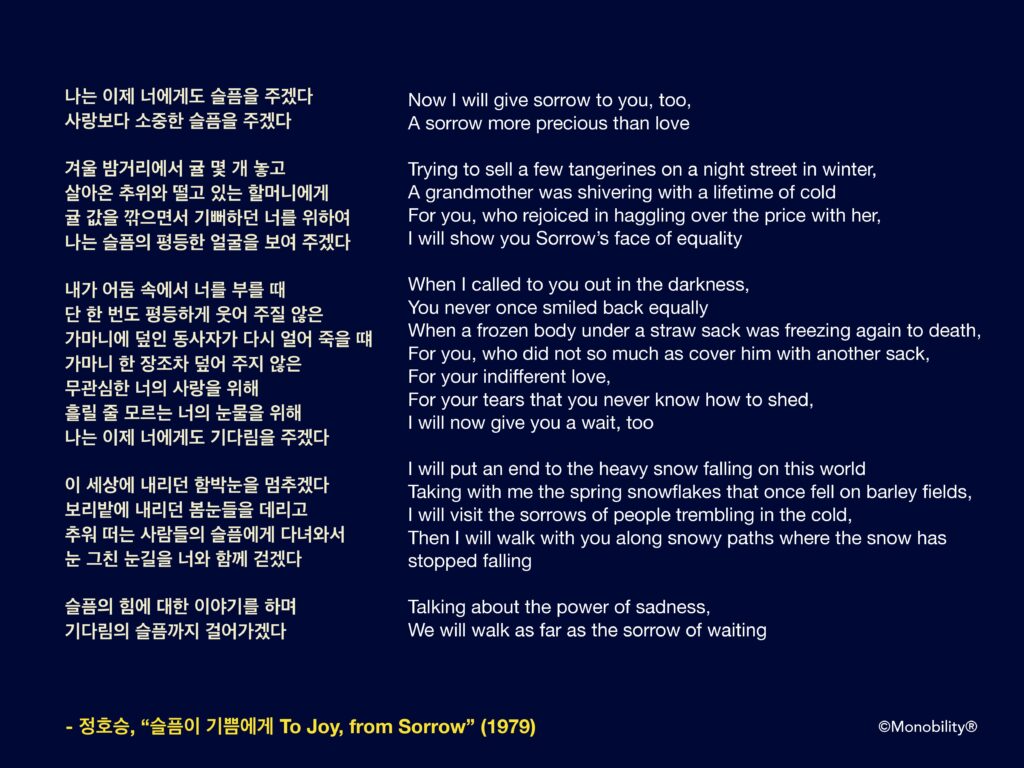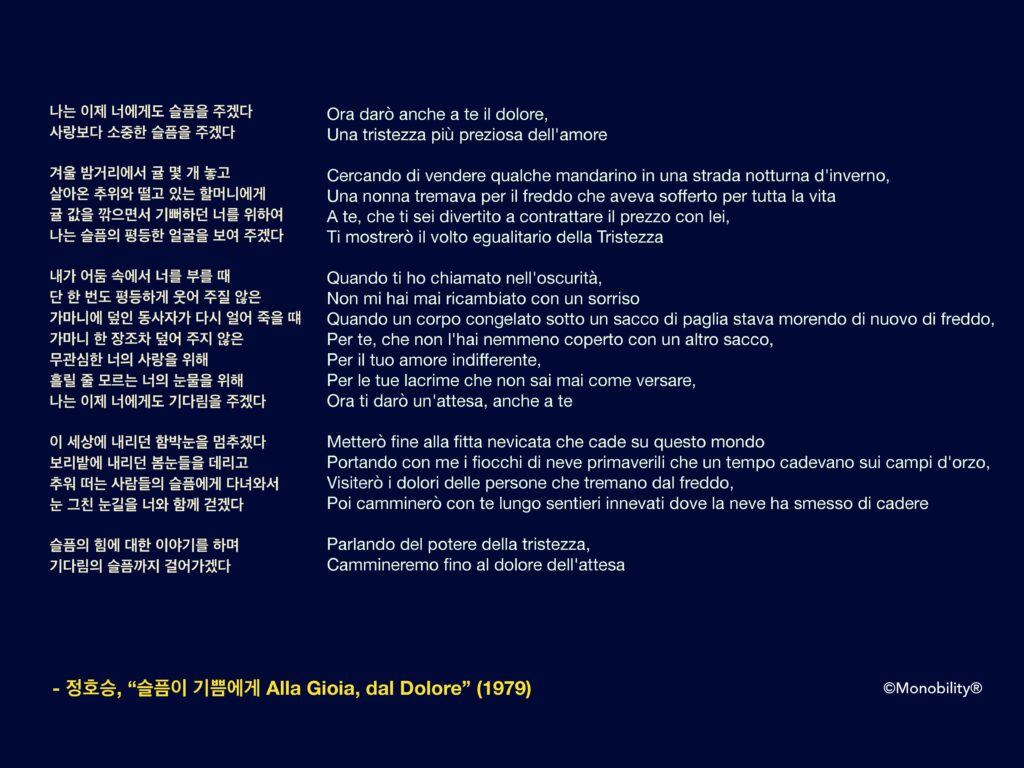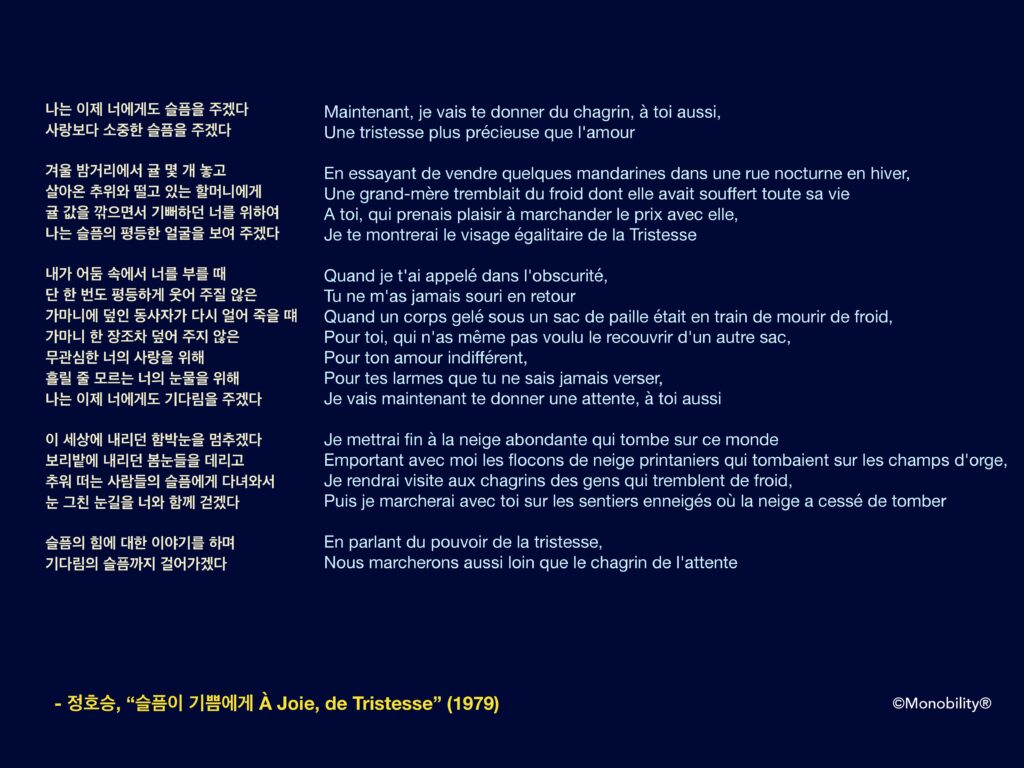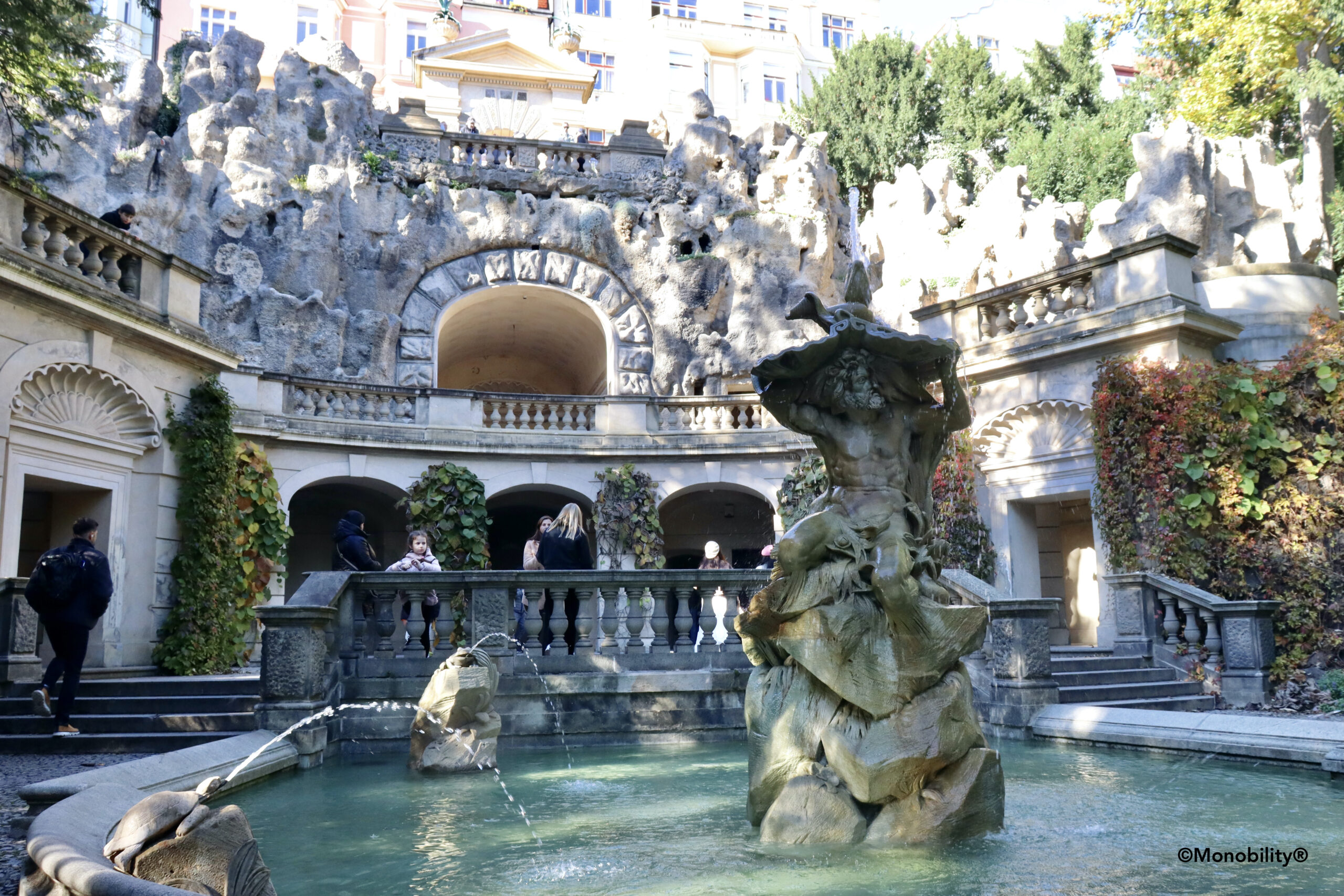A. Top Priority Conjugation: Koreans use the -요 ending for verbs and adjectives in polite conversations. Consequently, it will be your highest priority to master this conjugation. Basic rules of -요 conjugation are:
a) If the vowel of the verb/adjective stem is ㅏ or ㅗ, add 아요 to the stem:
- 좋다 good => 좋아요; 가다 to go => 가요 [가아요 => 가요 contraction]
b) If the vowel of the verb/adjective stem is anything other than ㅏ or ㅗ, add 어요 to the stem:
- 먹다 to eat => 먹어요; 죽다 to die => 죽어요; 배우다 to learn => 베워요 [배우어요 => 베워요 contraction]
c) If the root form is -하다, simply say -해요:
- 사랑하다 to love => 사랑해요; 심심하다 bored => 심심해요
Sounds pretty easy, right? Well, there are a few irregularities, of course. One common irregularity is found in the root forms ending with -으다/-ㅡ다. In this case, the vowel of the penultimate (last but one) syllable of the stem determines the ending, following the above rule:
- 예쁘다 pretty=> 예뻐요 [ the vowel is ㅖin the syllable 예 => add -어요 => 예쁘어요 => 예뻐요 contraction ]
- 나쁘다 bad => 나빠요 [ the vowel is ㅏ in the syllable 나 => add -아요 => 나쁘아요 => 나빠요 contraction ]
So from now on, you would never say just root forms (-다) in your conversation, since now you can conjugate many verbs and adjectives with -요.
B. Abstract Noun Formation with -ㅁ from Verbs and Adjectives
In European languages, you add endings like -ness, -(i)ty, -té, -tà, -dad, -dade, -tät, -ość, -сть, etc. to certain adjectives to form abstract nouns. Similarly, Koreans add the consonant “ㅁ” to many adjectives of pure Korean origin to form certain abstract nouns. This is very simple. You only have to add that nice and warm “m” sound to the stem of the adjectives (or some verbs to be used like a gerund):
- 아프다 hurt, sick => 아픔 pain
- 기쁘다 joyous => 기쁨 joy
In his poignant poem “슬픔이 기쁨에게 To Joy, from Sorrow,” the contemporary poet 정호승, loved by many Koreans, uses a literary device called personification of abstract nouns like 슬픔 and 기쁨. Although it is not common in the Korean literature, many European writers have often used such personification since Virgil. And naturally, the star screenwriter, 김은숙, who captivated viewers worldwide through her masterpieces such as “Mr. Sunshine (2018)” and “The Glory (2022),” among many others, stunned me once again when she aptly quoted this poem near the end of her recent fantasy series, “Genie, Make a Wish (2025).” This time, she made all of us naive viewers stay with her story through thick and thin and patiently wait for Bae Suzy’s intentionally emotionless psychopathic face to burst into an emotive fountain of empathy and remorse, finally in episodes 11 and 12 near the heartwrenching finale. In case you get bored with childish and ridiculous farce and “joy” in earlier episodes, perhaps bewildered by awkwardly mistranslated Netflix subtitles, I suggest you watch the video I curated particularly for you, read and understand this poem narrated by the lead actor Kim Woo-bin near the finale. You will soon realize that this drama exactly follows the humanistic theme presented in the poem by 정호승. From episode 1 to all the way to 10, the writer was satirizing “기쁨 (Joy)” as a futile, absurdly comical, callously egoistic human pursuit for happiness at the expense of others. In that sense, she made us all experience the sorrow of waiting, just as the poem sternly speaks to our conscience and humanity.



Level A2: The poet used three abstract nouns formed by adding “ㅁ” to pure Korean adjective word stems in the poem. What are they? And how would you conjugate those adjectives in a normal polite register with -요 endings?
Level B2: A Korean genie accepts only one wish from you, not three. What would be that one wish you would make at this point in your life? Your wish should be in Korean, since this genie understands only Korean.
Hint: If you’d like, you can use a typical expression of wish:
(a clause, ending with a verb/adjective stem)-게 해 주세요 = Please make it happen that …
Death, be not proud, though some have called thee
– John Dunne (c. 1571 – 1631), from “Holy Sonnets: Death, Be Not Proud”
Mighty and dreadful, for thou art not so
Monobility® Group



